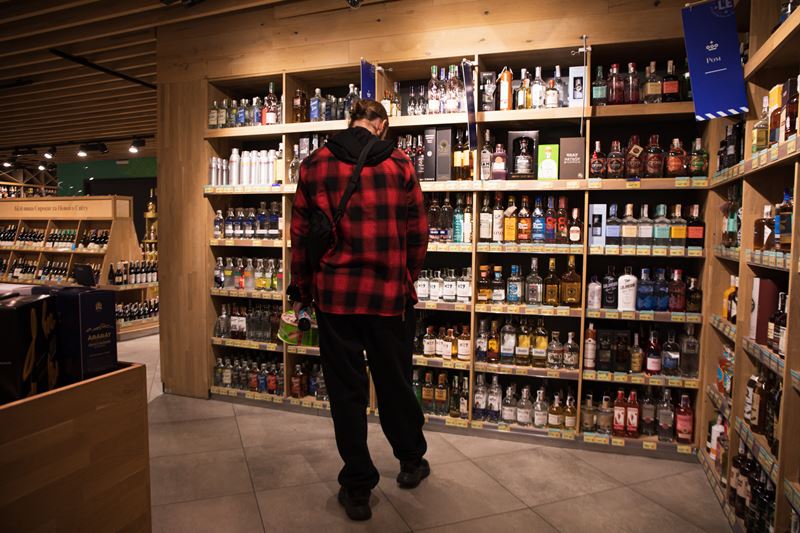Health trends and recreational cannabis are reshaping consumer preferences and retailer offerings
Retailers expand offerings to meet growing consumer demand
2024-02-06

The landscape of beverage alcohol retailing is experiencing a notable shift, as health-conscious trends and the legal expansion of recreational cannabis use influence consumer behaviors, particularly during the annual tradition of Dry January. This period, traditionally a time for resolutions and health-focused initiatives, has seen an increased interest in non-alcoholic (NA) spirits and products, challenging retailers to adapt and innovate to meet evolving consumer demands.
Mark O'Callaghan, the owner of Exit 9 Wine & Liquor Warehouse in Clifton Park, New York, has observed a significant decrease in sales volume during January over the past two years, attributing the decline not only to the health-conscious choices of consumers but also to the competition from legal recreational cannabis. This shift has prompted retailers like O'Callaghan to rethink their strategies and offerings, noting that while sales for beverage alcohol have dipped, the interest in NA alternatives is on the rise, albeit from a low starting point.
At Julio's Liquors in Westborough, Massachusetts, owner Ryan Maloney has taken proactive steps to capitalize on this emerging market by introducing a dedicated non-alcoholic retail section. This initiative not only caters to the Dry January participants but also serves as a year-round offering, reflecting the growing consumer interest in NA beverages. By increasing the store's selection to nearly 150 SKUs of non-alcoholic wine, beer, spirits, and specialty ready-to-drink (RTD) products, Maloney is tapping into a segment that, while currently small in volume, is rapidly expanding.
These changes in consumer preferences are not without their challenges, especially in states like New York, where regulations restrict the sale of non-alcoholic wines and spirits in beverage alcohol stores. O'Callaghan's experience highlights the regulatory hurdles that can limit the ability of retailers to fully embrace the NA trend, despite growing consumer demand for such products.
Retailers have noted that education and customer service are crucial components of successfully selling NA beverages. By leveraging their expertise in flavor profiles and cocktail creation, stores like Julio's Liquors are positioning themselves as not just retailers but educators and curators of the beverage alcohol and NA categories. This approach has allowed them to continuously adapt their offerings based on customer feedback and preferences, ensuring that their selections remain relevant and appealing.
The success of NA products in beverage alcohol stores, as demonstrated by top-selling brands at Julio's Liquors, underscores the potential of this category to not only attract a diverse customer base but also to create a unique shopping experience that emphasizes sophistication and choice. By integrating NA options into their portfolios, retailers can cater to a wider range of consumer needs and preferences, from those seeking healthier lifestyle choices to individuals exploring alternatives to traditional alcoholic beverages.
As the beverage alcohol industry continues to navigate the complexities of consumer trends, legal changes, and health-conscious movements, the growth and integration of NA products in retail settings signal a broader shift in consumption patterns. Retailers who embrace this change and innovate in response to it are likely to find new opportunities for growth and customer engagement, even in traditionally slow sales periods like January.
Founded in 2007, Vinetur® is a registered trademark of VGSC S.L. with a long history in the wine industry.
VGSC, S.L. with VAT number B70255591 is a spanish company legally registered in the Commercial Register of the city of Santiago de Compostela, with registration number: Bulletin 181, Reference 356049 in Volume 13, Page 107, Section 6, Sheet 45028, Entry 2.
Email: [email protected]
Headquarters and offices located in Vilagarcia de Arousa, Spain.